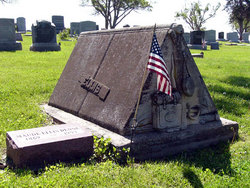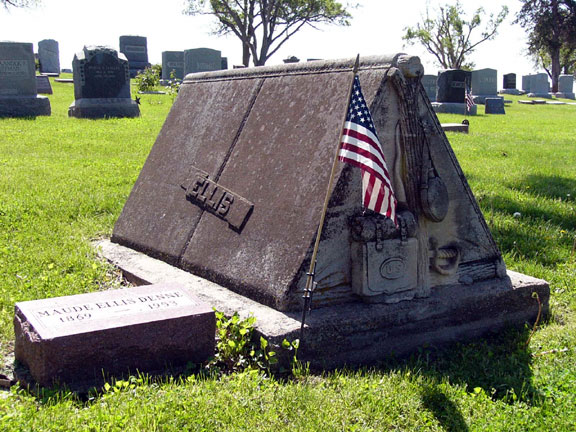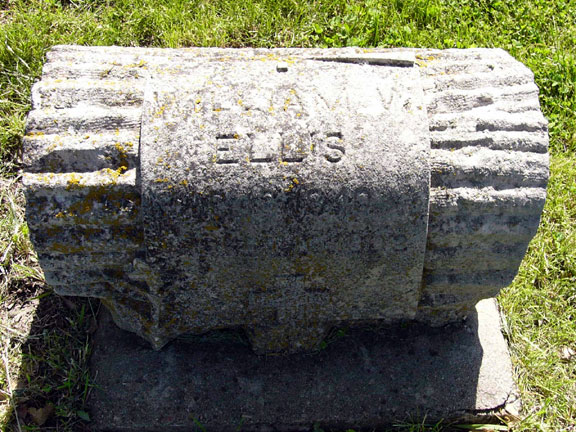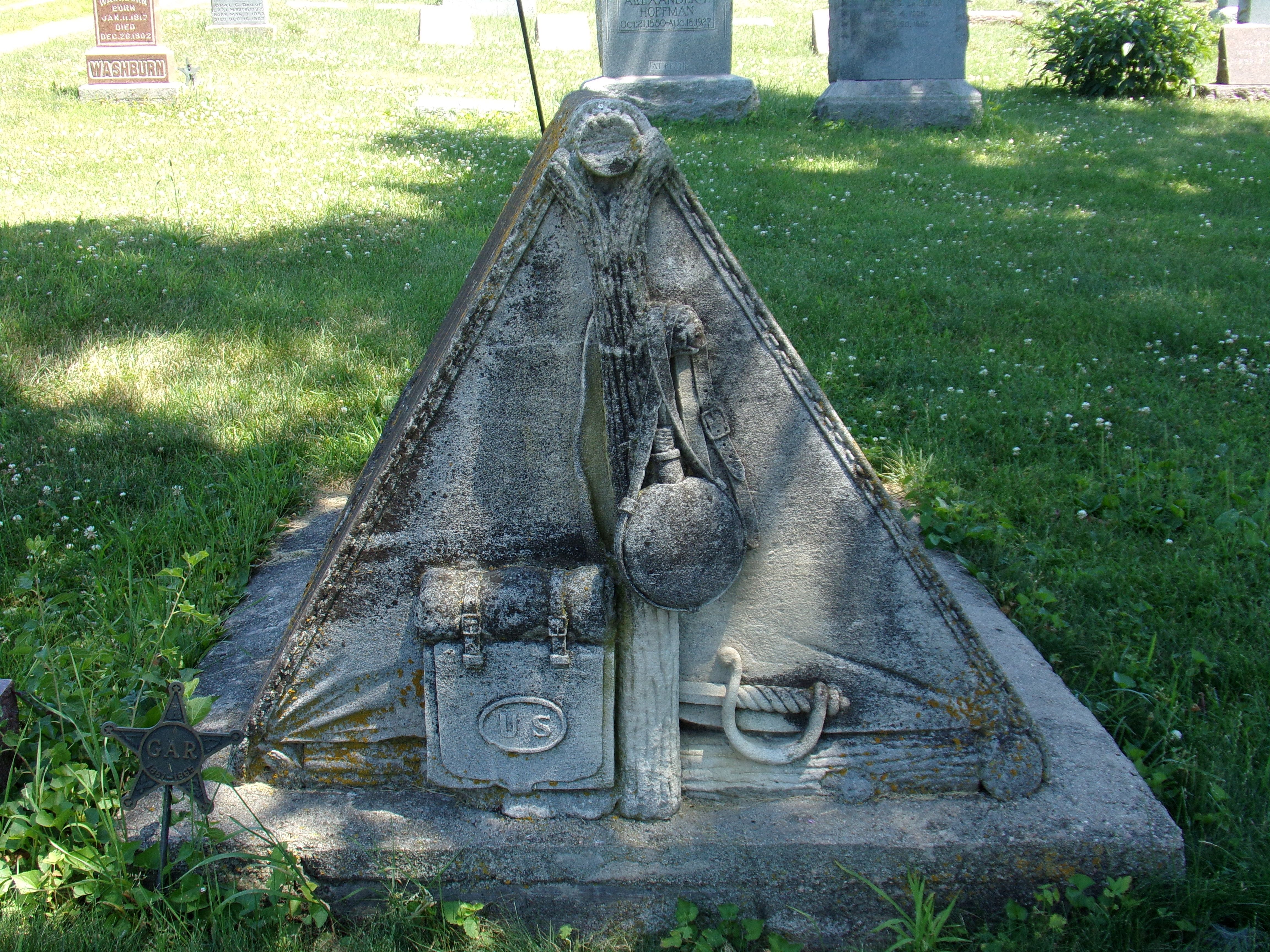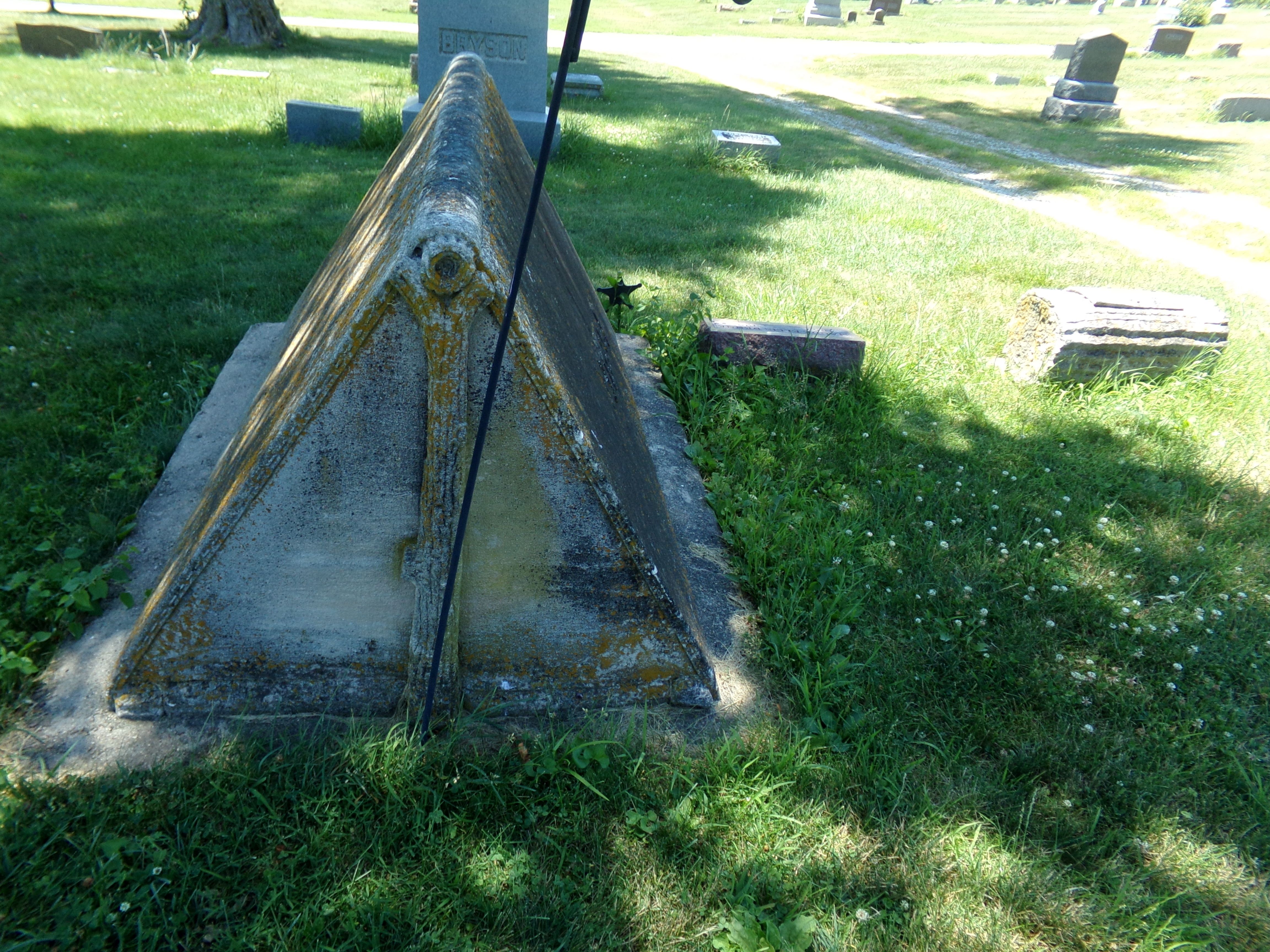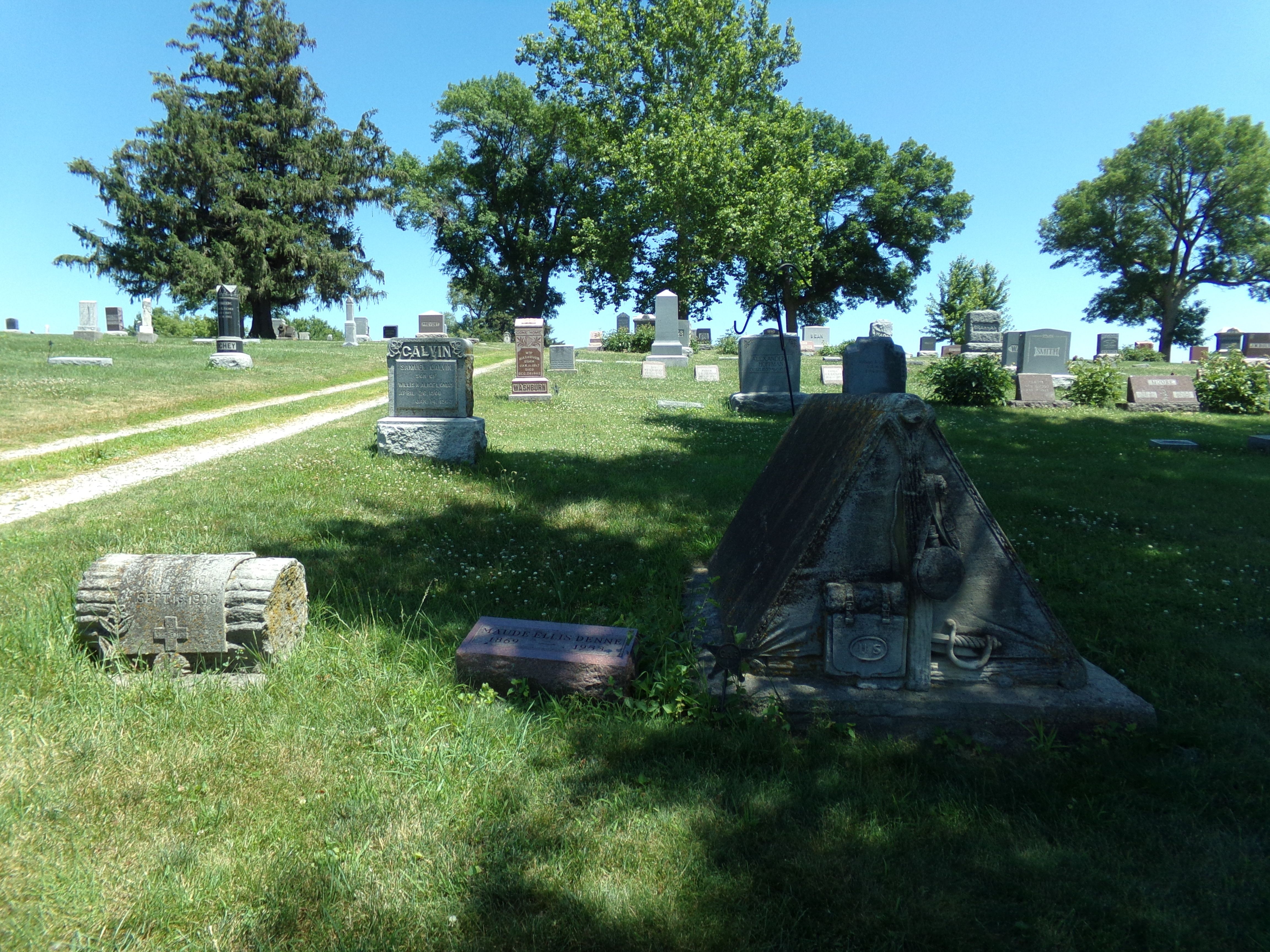ELLIS, WILLIAM W.,
P. O. Villisca; born in Wilkes-barre, Pennsylvania, March 18, 1840. Educated at home. Entered the army April 16, 1861; enlisted as a private for three months, and served his time, returning as acting quartermaster. Raised a company and with his company joined Birney's Zouaves. Was wounded at Fair Oaks, in the shoulder; and at Fredericksburg, in 1863, in the loin and compound fracture of left leg, while taking part in the famous charge of the Light Division, (61st Pennsylvania regiment); on account of his extreme youth he was known as the "Boy Captain." Gave up his captaincy, voluntarily, for first lieutenancy, but was promoted for bravery at Fair Oaks. Also wounded at Fredericksburg. Was in the battles of Williamsburg, Savage's Station, Fair Oaks, Malvern Hill, and in the seven days' fight at Fredericksburg, Antietam and South Mountain. After being wounded at Fredericksburg, was taken to Washington, and after convalescing was transferred to the "veteran reserve corps," by order of the president, and confirmed by congress, and remained in service until discharged in 1866. He went into business at his old home. In 1870 he removed to Villisca, and is now engaged in the grain trade at that place, owning the elevator there, buying and shipping a large amount of grain annually. He is now colonel of the Fifth regiment Iowa National Guards; was elected colonel in April, 1880. (A history of this regiment will be found in another part of this book.) Col. Ellis is a member of the Masonic and Odd Fellows lodges of Villisca. Was married to Maggie Sleppy in 1861. They have four children: Arthur W., aged nineteen, Emmor, aged seventeen, Walter S., aged fourteen, and Maud T., aged thirteen. Col. Ellis has proved himself to be a brave man and worthy soldier, going at the first call of the government and remaining until the country was redeemed and peace declared. -- Note: Bio information courtesy of contributor, kweaver.
"Case 677. — Captain W. W. Ellis, Co. U, 61st Pennsylvania, aged 23 years, was wounded in the left leg, at Chancellorsville, May 3, 1863, and entered Douglas Hospital, Washington, five days afterwards. Assistant Surgeon W.Thomson, U. S. A., reported: "This officer suffered a fracture of the tibia near its middle by a ball, which entered posteriorly at the gastrocnemius muscle, and was retained. The fracture united without exfoliation, necrosis, or even free suppuration. The leg was placed in a bran box and dressed with cold-water applications. The patient suffered from severe catarrh, which yielded to treatment. There was also hyperesthesia of the foot, for which, before the patient left on furlough in June, I made an incision in search of the ball and disturbed the cicatrix with good effect, relieving the nervous irritation of the foot. When the patient returned from furlough, September 1st, he was ordered to report to Surgeon M. Clymer, U. S. V., for treatment, and I lost sight of him. His recovery was good, but the leg was yet feeble and contracted, owing to want of passive motion while at his home." Captain Ellis resigned January 1, 1864, and was commissioned in the Veteran Reserve Corps, in which organization he served until March 13, 1866, when he was mustered out and pensioned. Examining Surgeon G. Urquhart, of Wilkesbarre, Pennsylvania. August 22, 1866, certified to half an inch shortening of the limb; also to painfulness, weakness, and occasional lameness. Examiner J. W. Martin, of Red Oak, Iowa, reported, September 4, 1873: "There are large cicatrices on the left side of the tibia; leg bent and shortened; foot swollen and tender, and muscles shrunken above the ankle. He suffers extreme pain in the leg and is unable to bear much weight upon it; general health not good." The pensioner was paid September 4, 1880." -- The Medical and Surgical History of the War of the Rebellion. Part III, Volume II. (3rd Surgical volume) by U.S. Army Surgeon General's Office.
ELLIS, WILLIAM W.,
P. O. Villisca; born in Wilkes-barre, Pennsylvania, March 18, 1840. Educated at home. Entered the army April 16, 1861; enlisted as a private for three months, and served his time, returning as acting quartermaster. Raised a company and with his company joined Birney's Zouaves. Was wounded at Fair Oaks, in the shoulder; and at Fredericksburg, in 1863, in the loin and compound fracture of left leg, while taking part in the famous charge of the Light Division, (61st Pennsylvania regiment); on account of his extreme youth he was known as the "Boy Captain." Gave up his captaincy, voluntarily, for first lieutenancy, but was promoted for bravery at Fair Oaks. Also wounded at Fredericksburg. Was in the battles of Williamsburg, Savage's Station, Fair Oaks, Malvern Hill, and in the seven days' fight at Fredericksburg, Antietam and South Mountain. After being wounded at Fredericksburg, was taken to Washington, and after convalescing was transferred to the "veteran reserve corps," by order of the president, and confirmed by congress, and remained in service until discharged in 1866. He went into business at his old home. In 1870 he removed to Villisca, and is now engaged in the grain trade at that place, owning the elevator there, buying and shipping a large amount of grain annually. He is now colonel of the Fifth regiment Iowa National Guards; was elected colonel in April, 1880. (A history of this regiment will be found in another part of this book.) Col. Ellis is a member of the Masonic and Odd Fellows lodges of Villisca. Was married to Maggie Sleppy in 1861. They have four children: Arthur W., aged nineteen, Emmor, aged seventeen, Walter S., aged fourteen, and Maud T., aged thirteen. Col. Ellis has proved himself to be a brave man and worthy soldier, going at the first call of the government and remaining until the country was redeemed and peace declared. -- Note: Bio information courtesy of contributor, kweaver.
"Case 677. — Captain W. W. Ellis, Co. U, 61st Pennsylvania, aged 23 years, was wounded in the left leg, at Chancellorsville, May 3, 1863, and entered Douglas Hospital, Washington, five days afterwards. Assistant Surgeon W.Thomson, U. S. A., reported: "This officer suffered a fracture of the tibia near its middle by a ball, which entered posteriorly at the gastrocnemius muscle, and was retained. The fracture united without exfoliation, necrosis, or even free suppuration. The leg was placed in a bran box and dressed with cold-water applications. The patient suffered from severe catarrh, which yielded to treatment. There was also hyperesthesia of the foot, for which, before the patient left on furlough in June, I made an incision in search of the ball and disturbed the cicatrix with good effect, relieving the nervous irritation of the foot. When the patient returned from furlough, September 1st, he was ordered to report to Surgeon M. Clymer, U. S. V., for treatment, and I lost sight of him. His recovery was good, but the leg was yet feeble and contracted, owing to want of passive motion while at his home." Captain Ellis resigned January 1, 1864, and was commissioned in the Veteran Reserve Corps, in which organization he served until March 13, 1866, when he was mustered out and pensioned. Examining Surgeon G. Urquhart, of Wilkesbarre, Pennsylvania. August 22, 1866, certified to half an inch shortening of the limb; also to painfulness, weakness, and occasional lameness. Examiner J. W. Martin, of Red Oak, Iowa, reported, September 4, 1873: "There are large cicatrices on the left side of the tibia; leg bent and shortened; foot swollen and tender, and muscles shrunken above the ankle. He suffers extreme pain in the leg and is unable to bear much weight upon it; general health not good." The pensioner was paid September 4, 1880." -- The Medical and Surgical History of the War of the Rebellion. Part III, Volume II. (3rd Surgical volume) by U.S. Army Surgeon General's Office.
